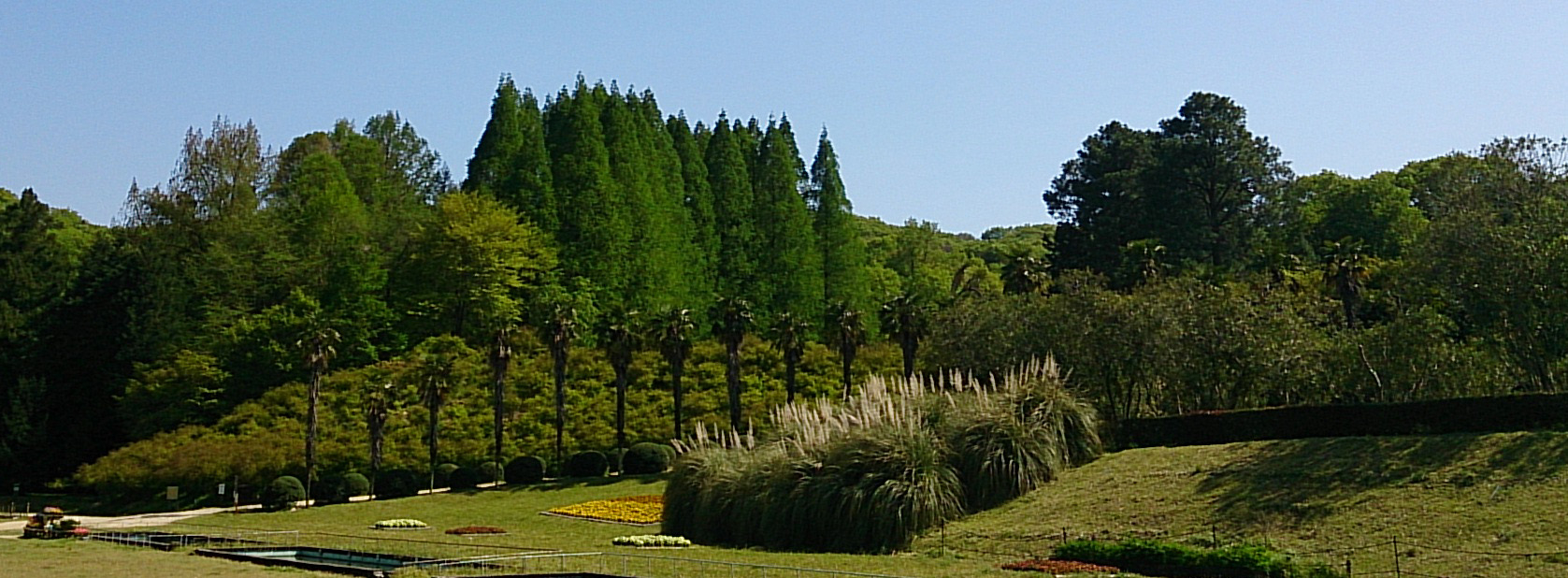About us

A botanical garden is a facility that collects, preserves, and exhibits plants; provides a space for visitors to relax with flowers and greenery; conducts plant research; disseminates knowledge about plants and horticulture; and promotes social education, environmental conservation, and nature preservation (Japan Association of Botanical Gardens, 2004). The Osaka Metropolitan University Botanical Gardens was established in 1950 as a research station of the Faculty of Science and Engineering, Osaka City University. Since its establishment, this institution has collected and preserved numerous plant species while contributing to research, education, and society.
A notable feature of the botanical gardens is the forest exhibit, which reproduces 11 Japanese forest types, ranging from Hokkaido to Kyushu, in a near-natural state. Such an ecological exhibit is rare in the global botanical community. In April 2023, the forest exhibit was designated as a core site of the Japan Long-Term Ecological Research Network. They provide environments for investigating plant responses to environmental stimuli, forest ecosystem composition and structure, and biological interactions between plants and animals.
The Osaka Metropolitan University Botanical Gardens is dedicated to the conservation and propagation of endangered plants. In collaboration with research institutes, local governments, and citizen groups, the gardens collect endangered species, mainly from western Japan, to protect them outside of their habitats and to propagate seedlings and mature specimens. Additionally, the institution analyzes the DNA of endangered plants to evaluate population genetic diversity and identify conservation units.
As a university facility, the gardens aim to educate students through multiple basic education courses, general liberal arts courses, and specialized education courses. These offerings are unique to the botanical gardens, where students can learn about plants outdoors in addition to classroom lectures, thereby acquiring a comprehensive education and in-depth expertise.
The botanical gardens also serve as a place for relaxation. Visitors can enjoy colorful plants such as cherry blossoms in spring, rose of Sharon in summer, maple leaves in autumn, and camellias in winter. Children can run and play in grassy areas, surrounded by fragrant flowers.
From an ecological perspective, plants are considered producers, whereas animals (including humans) are considered consumers or decomposers. Human life depends on organic matter created by plants through photosynthesis. However, the expanding global population and increasing human activities are causing deforestation and plant extinction, thereby threatening the foundation of human survival. Plants are crucial to resolving contemporary global environmental issues. Human development would be impossible without our symbiosis with plants. We believe that the social mission of botanical gardens worldwide has never been more important than it is now, and we will exert extensive efforts to further their development. We appreciate your support of the Osaka Metropolitan University Botanical Gardens.